Top Lightweight Camping Equipment: Essential Gear for 2025 Adventures
Want to keep your camping pack light? This guide highlights the top lightweight camping equipment to ensure your comfort and safety. Discover gear for shelters, sleeping, and cooking that will lighten your load without compromising functionality.
Key Takeaways
Lightweight camping focuses on minimizing gear weight while balancing comfort, cost, and functionality, with ultralight backpacking aiming for a base weight of under 10 pounds.
Choosing the right lightweight gear such as tents, sleeping systems, and cooking equipment enhances mobility, reduces fatigue, and contributes to a more enjoyable outdoor experience.
Efficient packing, organizing gear, and cutting unnecessary items are key strategies for maintaining a lightweight setup during camping, ensuring a smoother and safer adventure.
This page contains affiliate links, and that means that I may earn a commission if you buy something, at no extra cost to you. You can find my full disclosure policy here.
Understanding Lightweight Camping
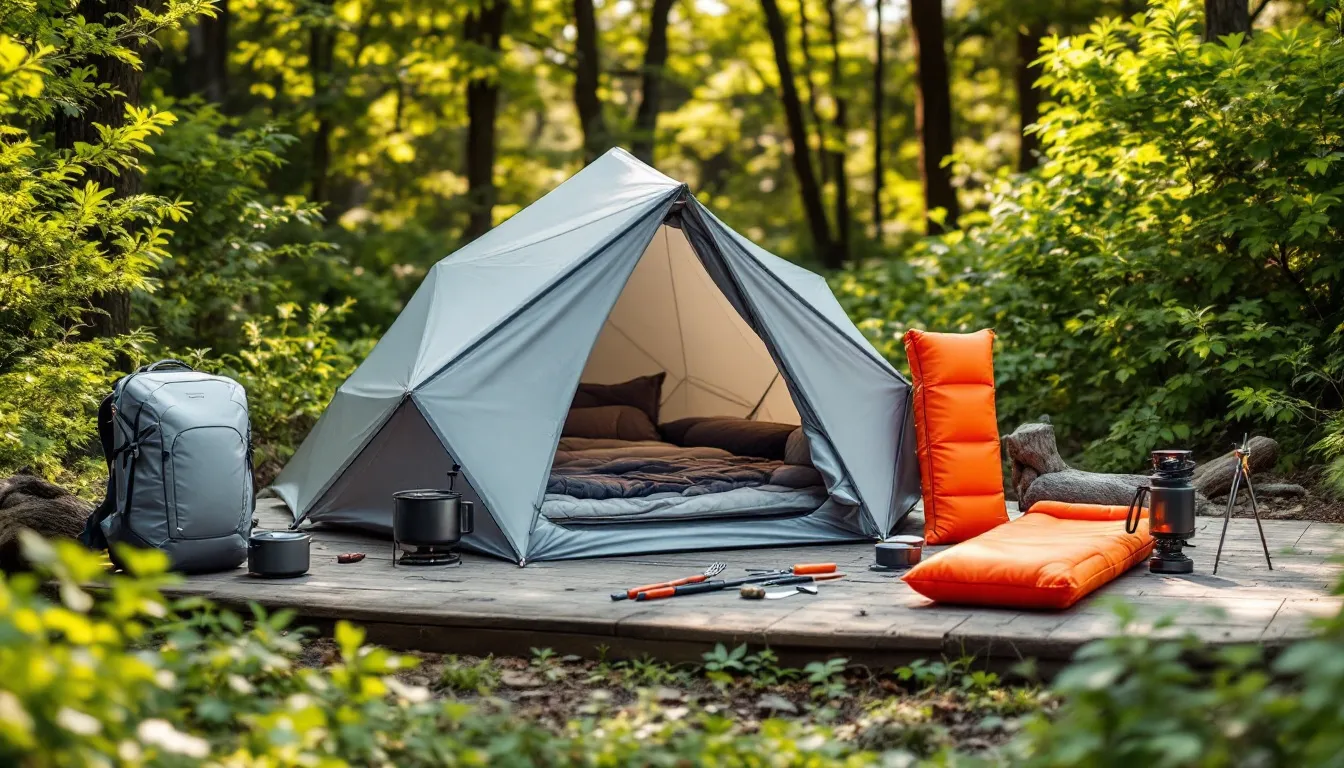
Lightweight camping is all about obsessing over gear weight and adopting a minimalist approach, often sacrificing comfort for weight savings.
This approach requires a careful balance of various factors such as weather, trail conditions, and hiking distance. For those who embrace ultralight backpacking, the goal is to achieve a base weight under 10 pounds. But what does this mean in practical terms?
When planning your lightweight camping trip, it’s crucial to consider the trail difficulty, distance from help, and duration of your journey.
Finding the right balance among weight, storage, cost, and comfort is essential when choosing your backpack and other gear.
Lightweight shelters, for instance, provide essential protection from the elements while minimizing pack weight. Understanding what makes camping gear lightweight and its benefits can help improve your camping experience.
What is considered lightweight camping gear?
Lightweight camping gear strikes a delicate balance between cost, weight, and comfort while focusing on minimizing overall backpack weight.
Typically, the recommended weight range for ultralight gear backpacks is between 10-25 pounds, which is an important consideration when selecting your gear.
It’s worth noting that achieving less weight often requires a higher investment in gear, which can impact overall comfort for outdoor adventurers.
Experienced hikers who understand the trade-offs between weight and performance are generally the ones who benefit most from ultralight backpacks.
These backpacks often prioritize weight reduction, sometimes at the expense of additional features that some users may find valuable.
For beginners, traditional packs might be more suitable, as ultralight backpacks are not always the best fit.
Benefits of using lightweight camping equipment
One of the primary benefits of using ultralight backpacking gear is improved mobility. A lighter pack allows for easier navigation of varied terrain, making your hikes more enjoyable.
Additionally, carrying less weight translates to lower energy consumption, resulting in less fatigue and a reduced likelihood of injuries.
The combination of improved mobility and reduced fatigue ultimately contributes to a safer and more pleasant outdoor experience.
Reducing pack weight with lightweight camping equipment lets you enjoy the beauty of nature without the strain of heavy gear.
Lightweight Shelters for Camping
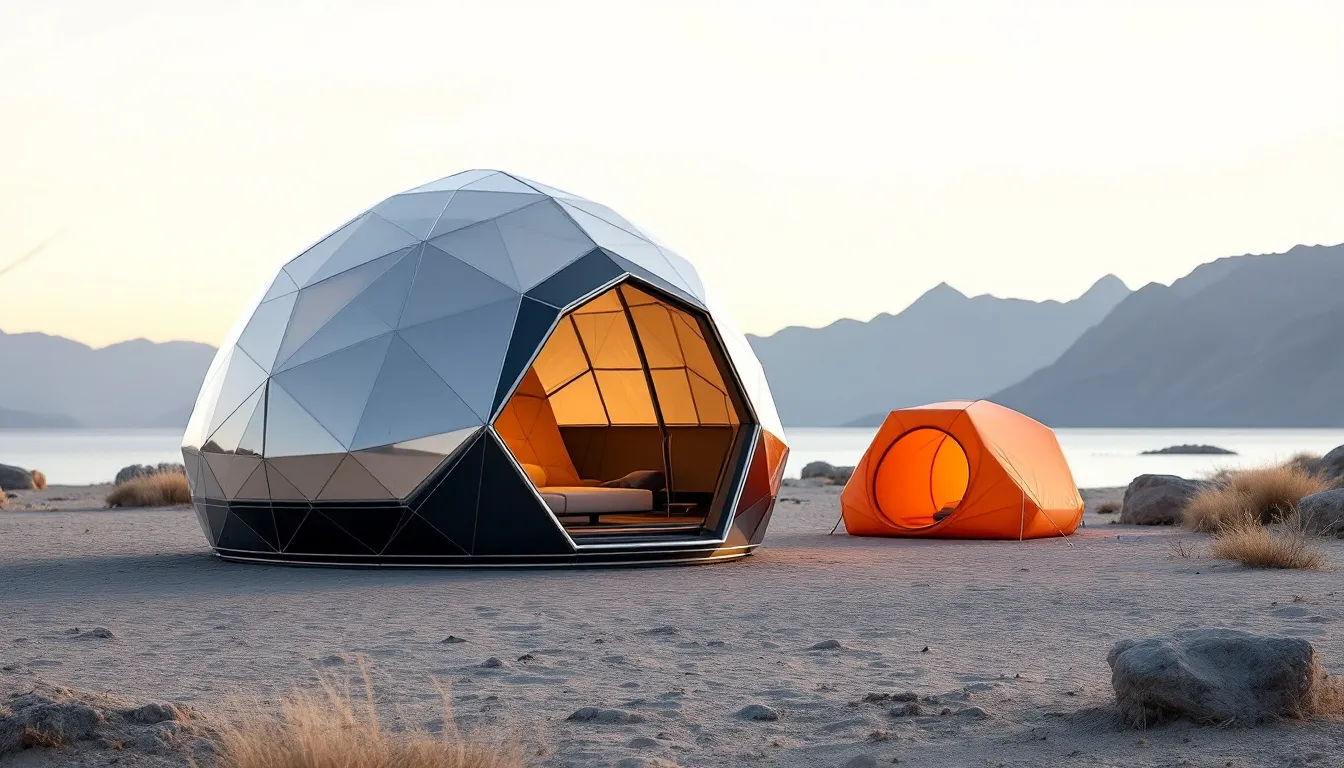
When it comes to lightweight camping, shelters are a critical component. Lightweight shelters provide the bare minimum for camping, emphasizing essentials without excess weight.
From ultralight tents to bivy sacks and hammocks, each option offers unique advantages for the minimalist camper.
Different types of lightweight shelters offer unique advantages, which we’ll explore next.
Ultralight tents
Ultralight tents typically weigh less than 2 pounds, making them a top choice for those looking to reduce pack weight. The Gossamer Gear The One tent, for example, weighs just 17.7 oz and is highly recommended for ultralight solo adventures.
This tent can be pitched using trekking poles, which further reduces its overall weight and enhances ease of setup.
Another excellent option is the Big Agnes Tiger Wall UL 2 tent, which features functional designs such as mesh inners to prevent condensation and pockets for gear organization.
For taller campers, the Nemo Firefly 2P tent provides ample headspace and convenience without requiring an extra footprint for durability. Each of these tents exemplifies the balance of minimal weight and excellent functionality.
The Tarptent Aeon Li, made from durable Dyneema fabric, is another standout in the ultralight tent category.
This one-person tent can be set up using a trekking pole or an optional support pole, as well as tent poles, making it a versatile and reliable choice for solo hikers. With options like these, finding the perfect ultralight tent for your needs is easier than ever.
Bivy sacks
Bivy sacks offer a minimalistic shelter option that appeals to lightweight camping enthusiasts. These compact, lightweight, and waterproof shelters are designed to endure various weather conditions, making them a reliable choice for solo campers.
Bivy sacks offer effective shelter with minimal weight, making them ideal for those who prioritize simplicity and efficiency.
For solo adventurers looking to maximize their weight savings, bivy sacks are an excellent option.
They offer the necessary protection from the elements without the bulk and weight of traditional tents. This makes them a popular choice among ultralight backpackers who seek to streamline their gear.
Hammocks
Hammocks provide a unique level of comfort as they reduce pressure points on the body and allow for a natural sleeping position.
The materials used in lightweight camping hammocks offer a cozy feel, enhancing the overall camping experience. Moreover, hammocks allow for ventilation, which helps keep campers cool during warm nights.
Modern camping hammocks are designed for quick setup, with features like integrated straps and carabiners that expedite the process. read more on Best hammocks for relaxation
The intuitive design often allows for setup in under five minutes, making them a convenient choice for campers. Rain flies or tarps can be used with hammocks for protection against rain and wind.
Sleeping Systems
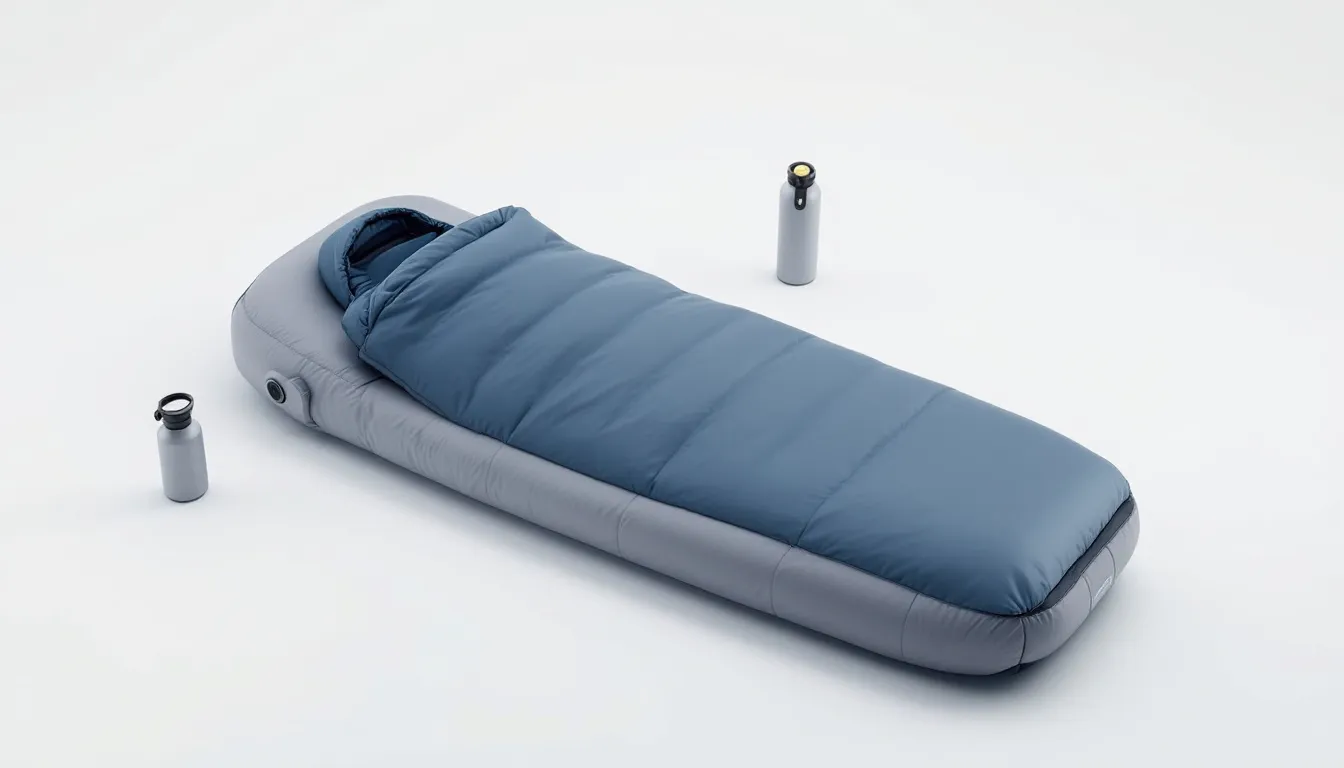
Effective lightweight sleeping systems significantly enhance comfort and warmth while backpacking. Choosing the right sleeping system is crucial for maintaining body temperature and ensuring a good night’s sleep in the backcountry.
A sleeping system consists of components like sleeping bags, pads, and quilts, all of which enhance comfort and warmth.
Sleeping bags
Ultralight sleeping bags often use high-quality down to optimize warmth without adding excess weight.
These sleeping bags can be packed down to the size of a water bottle, making them incredibly convenient for lightweight camping. Minimizing pack weight is a key challenge when choosing sleeping bags for lightweight camping.
Selecting a warmer sleeping bag is crucial for shoulder season trips to maintain comfort in cooler temperatures.
Women’s sleeping bags, in particular, often use lightweight materials and high-quality down for better warmth-to-weight efficiency.
This ensures that even as temperatures drop, you can stay warm and comfortable throughout the night.
The Deuter Astro Pro 400 sleeping bag, for example, keeps you warm down to around 0°C, making it a reliable option for various conditions. By prioritizing ultralight sleeping bags, you can significantly reduce your pack weight while ensuring a restful night’s sleep.
Sleeping pads
When choosing a sleeping pad, key aspects include comfort, weight, packed size, and durability. The R-value is a crucial measure for sleeping pads, indicating their ability to insulate against ground cold.
For example, the Zenbivy Ultralight Mattress has an R-value of 4.8, offering solid insulation for colder conditions.
The Therm-A-Rest NeoAir UberLite sleeping pad, weighing only 8.8 oz, is designed for lightweight portability while ensuring comfort.
Another excellent option is the NEMO Tensor All-Season Ultralight Insulated Sleeping Pad, which is light at 14.1 oz and boasts an impressive R-value of 5.4.
These pads provide a balance of weight and comfort, making them ideal for ultralight backpacking.
Top picks for sleeping pads have been highlighted in recent reviews, ensuring campers have the best options available. Whether you prioritize weight, insulation, or durability, there’s a sleeping pad that fits your needs.
Quilts
Ultralight quilts provide versatility and are typically lighter than traditional sleeping bags. The Enlightened Equipment Enigma 20 quilt, for instance, is made of 950 fill power down and 7d nylon, offering an excellent warmth-to-weight ratio.
This makes quilts an attractive option for those seeking to reduce pack weight without compromising on warmth.
The Revelation APEX quilt, with a temperature rating of 40°F, uses synthetic insulation, making it a practical choice for various conditions.
The StormLoft Down TopQuilt features a cinch cord and draft collar to help retain warmth, adding to its functionality.
By incorporating quilts into your sleeping system, you can achieve significant weight savings while ensuring a comfortable night’s sleep.
Cooking and Hydration Solutions
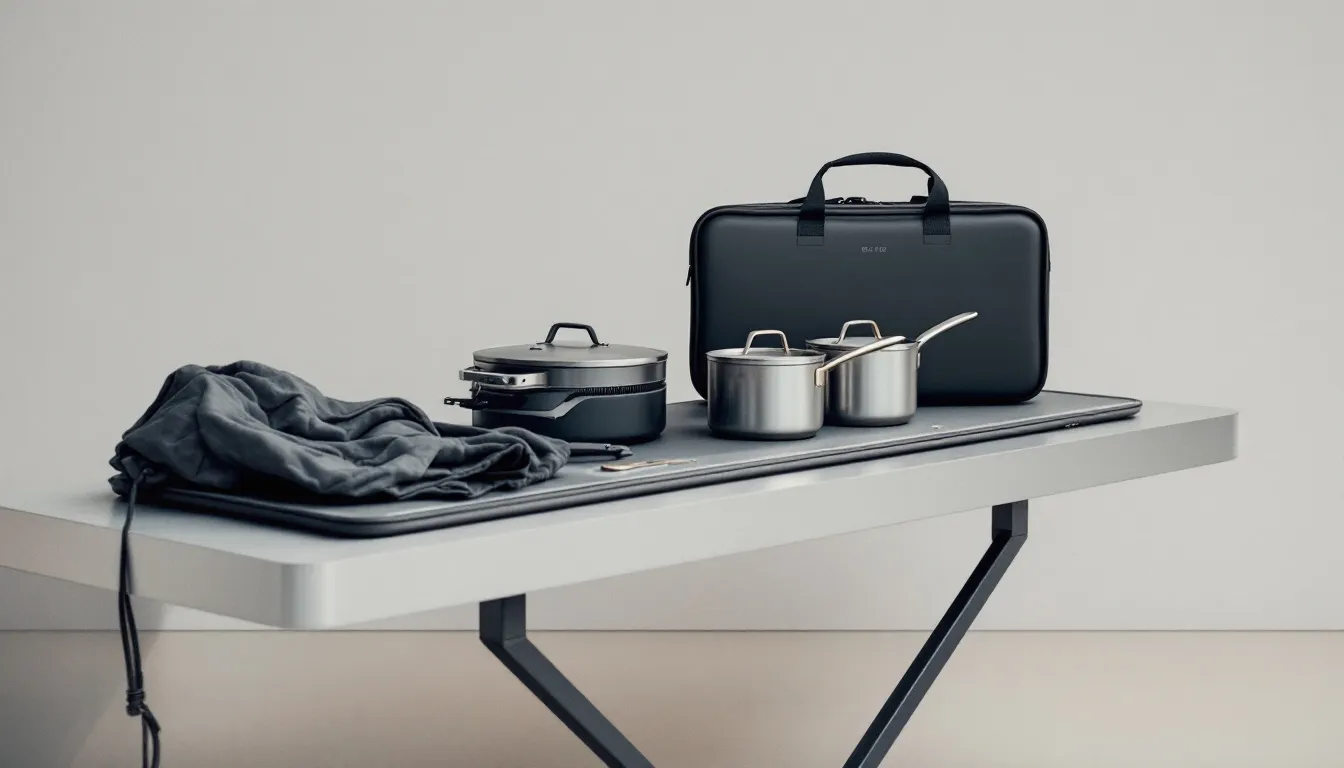
Cooking and hydration solutions are vital components of any backpacking kit. The preferred type of stove for most backpacking trips is a canister stove, known for being lightweight, small, and easy to use.
Ultralight stoves, cookware sets, and water filters and bottles can significantly enhance your camping experience.
Ultralight stoves
Gas canister stoves are favored for their rapid boiling times and ease of use. For those who prioritize weight, alcohol stoves are an extremely lightweight option, with some as light as 0.3 oz.
The Titan Stove from 2117 of Sweden, weighing 50 grams, is a viable option for those who prioritize weight.
Factors such as weight and fuel efficiency are important when choosing an ultralight stove for camping. Ultralight stoves have become essential for backpackers seeking to minimize weight while ensuring efficient meal preparation.
Cookware sets
Titanium pots are popular due to their durability and lightweight properties. Aluminum is recommended for cooking pots as it helps to avoid burning food.
The GSI Outdoors Minimalist Set comes with a cozy to keep food warm and a multifunctional lid.
The Olicamp XTS Pot, with a size of 1L, is a versatile choice for many camping scenarios. Priced at $33, it offers good value considering its features. Siliconized handles on the Olicamp XTS Pot improve grip and safety while cooking.
A capacity of 700ml to 1000ml is ideal for solo hikers to adequately prepare meals.
Water filters and bottles
Safe drinking water is the most basic need for backpacking. One of the most efficient lightweight solutions for water storage is the 1L Smartwater bottle, which fits Sawyer filters and stores easily in pockets.
Each 1L Smartwater bottle weighs only 1.2 oz, making it an ideal choice for lightweight camping.
The Katadyn BeFree water filter is notable for its front-shoulder-strap mounted design for efficient drinking. Compared to other filters like the Sawyer Squeeze and MSR QuickDraw, the Katadyn BeFree is lighter and more compact, weighing just 2.1 oz.
Using lightweight water bottles allows for efficient hydration while hiking.
Clothing and Footwear
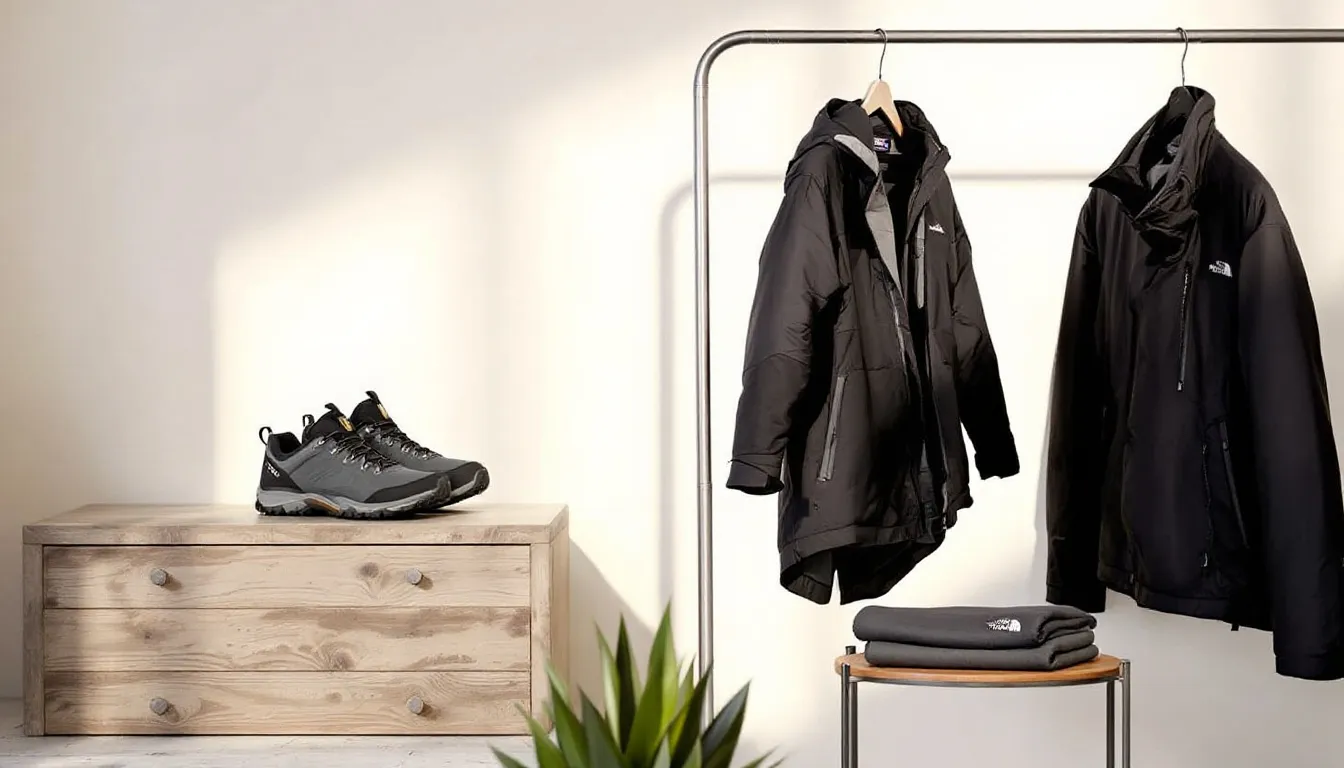
Clothing and footwear are crucial for comfort and performance during backpacking trips. Lightweight, breathable, and quick-drying materials, such as synthetic or wool, are recommended for hiking.
Functional clothing, trail runners versus hiking boots, and suitable outdoor gear rain gear are essential for being well-prepared in any conditions.
Functional clothing
Quality base layers regulate body temperature, wick away moisture, and keep you comfortable during your camping adventures. The Outdoor Research Echo Hoodie is light, stretchy, comfortable, and quick-drying, making it an excellent mid-layer option.
For shoulder season trips, a packable down jacket is recommended to provide warmth without adding bulk.
Men’s Kuhl Renegade Convertible Pants offer versatility with their durable, quick-dry fabric and UPF 50 protection against UV rays.
Paka Performance socks are essential as they provide comfort and thermo-regulation, keeping your feet dry and blister-free.
Understanding the weight and durability of additional clothing items can help with packing efficiently.
Trail runners vs. hiking boots
Trail running shoes are quickly becoming the preferred footwear for lightweight camping due to their lighter weight compared to traditional hiking boots.
Comfortable hiking footwear should provide a good fit and perform well in various conditions to enhance the overall hiking experience.
Using trail runners instead of heavy hiking boots reduces sole pressure and lessens fatigue on long hikes. Happy feet during a hike contribute significantly to an enjoyable experience, making the right choice in footwear essential.
Rain gear
The Outdoor Research Helium rain jacket weighs 5.6 oz and costs $159.00, featuring a zippered chest pocket and a cinch bungee on the hood. Breathable rain gear is essential to prevent overheating while providing protection against the elements.
The Zpacks Vertice Rain Pants weigh 3.2 oz, have a breathability rating of 56k, but are not considered durable. Lightweight rain gear is vital for camping as it protects against rain while maintaining mobility and comfort.
Essential Accessories
Accessories might seem like minor additions, but they play significant roles in ensuring a smooth and enjoyable camping experience. Lightweight accessories are crucial for enhancing camping experiences without significantly increasing pack weight.
Trekking poles, power banks, and first aid kits are essential accessories for a well-prepared camping trip.
Trekking poles
Trekking poles provide balance and stability during hikes. Using trekking poles can significantly reduce lower body strain by distributing some effort to the upper body.
The Leki Cressida FX Carbon AS Trekking Poles feature a foldable design and anti-shock technology, making them ideal for uneven terrain.
Cascade Mountain Tech Carbon Fiber Trekking Poles are lightweight at only 15.6 oz and are priced at $65, offering great value. Leki trekking poles are highly recommended for their reliability and performance on tough trails.
Power banks and electronics
Power banks are essential for ensuring devices remain charged throughout outdoor adventures.
The Anker PowerCore 10,000mAh power bank weighs 4.9 oz and can recharge devices like cameras and satellite communicators. The Nitecore NB10000 Gen 3 power bank weighs 5.3 oz and offers two or more complete phone recharges.
Including your phone in your gear is crucial for communication and navigation. A portable solar charger can be an excellent addition to power electronics like GPS and cameras during backpacking trips.
These electronics enhance navigation and communication, contributing to a safer and more enjoyable camping experience.
First aid kits
A well-designed first aid kit for ultralight camping can weigh as little as 2.5 oz while still addressing emergency needs.
The recommended weight reduction for a first aid kit in lightweight camping involves reducing it to fewer items from a full-featured pound kit.
Common items included in a homemade first aid kit are Leukotape, Ibuprofen, bandages, gauze pads, Neosporin, alcohol wipes, and personal prescriptions.
Compact first aid kits are essential for ensuring preparedness without compromising on pack weight during lightweight camping adventures.
Having a well-prepared first aid kit ensures that campers are ready for emergencies, maximizing safety during outdoor adventures.
Packing Tips for Lightweight Camping
Packing efficiently for a lightweight camping trip maximizes space and minimizes weight, ultimately enhancing the overall outdoor experience.
Reducing pack weight alleviates physical strain, allowing hikers to cover more ground and tackle challenging trails more easily.
Organizing your gear
Using a mix of ultralight stuff sacks for food organization can simplify meal management during trips. Stuff sacks can keep your gear organized, making it easier to find what you need without rummaging through your entire pack.
Keeping essentials within reach and well-organized streamlines the camping experience and minimizes stress.
Reducing pack weight
Achieving a lightweight hiking setup lowers energy expenditure, reduces pain, and lowers injury risk. Items such as deodorant, towels, and too many fresh socks are considered unnecessary for a lightweight backpacking setup.
To cut weight, focus on replacing heavy items like bags, pads, tents, and packs.
Using half a toothbrush hardly saves weight and may reduce usability, so consider keeping a full-size one for practicality.
Focusing on essential items and replacing heavy gear with lighter alternatives can significantly reduce pack weight and enhance the camping experience.
Summary
In summary, lightweight camping is all about finding the right balance between gear weight, comfort, and functionality.
By carefully selecting ultralight shelters, sleeping systems, cooking and hydration solutions, clothing and footwear, and essential accessories, you can significantly enhance your camping experience.
The benefits of using lightweight camping equipment include improved mobility, reduced fatigue, and a lower risk of injuries, making your outdoor adventures more enjoyable and safe.
As you prepare for your next adventure, remember the importance of packing efficiently and focusing on essential items. Embrace the world of ultralight camping gear and experience the freedom and joy of exploring the great outdoors with a lighter load. Happy hiking!
Frequently Asked Questions
What are the big 3 items backpacking?
The big three items in backpacking are your shelter, sleep system (bag and pad), and your backpack. Focusing on these essentials can really enhance your outdoor experience!
What is considered ultralight camping?
Ultralight camping means having a base weight of 10 pounds or less, excluding food and water. It’s all about minimizing gear while maximizing your adventure!
Is ultralight gear worth it?
Ultralight gear is worth it if you’re focused on minimizing weight and maximizing your mobility in the outdoors, but be prepared for some trade-offs in comfort. If you’re okay with less padding and fewer features, it can really enhance your hiking experience.
What is the recommended base weight for ultralight backpacking gear?
For ultralight backpacking, aim for a base weight of under 10 pounds, not counting food, water, or fuel. Keeping it light helps you enjoy your adventure more comfortably!
What are the benefits of using ultralight camping gear?
Using ultralight camping gear helps you move more easily and reduces fatigue, making your trips more enjoyable and safer. You’ll notice a significant difference in your overall camping experience!
